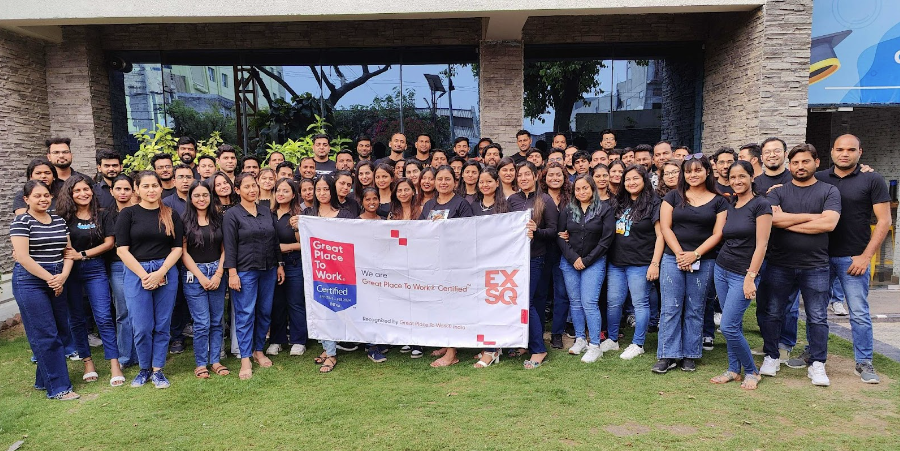Diversity & Inclusion: The X-Factors for Unprecedented Workplace Success
20
Oct 2023
-
CAtegories
-
discover more
Both aspects of D&I are important一diversity without inclusion can result in a toxic culture, and inclusion without diversity can make a company stagnant and uncreative. Companies are starting to focus more on diversity, but many disregard the inclusion piece of the puzzle. Without a concerted effort towards both inclusion and diversity, your workforce will feel out of place and unsupported. Both the concepts are essential for nurturing a dynamic workplace environment and organizations committed to D&I strive to create teams that echo the rich diversity found within the society they operate in.
Benefits of Diversity & Inclusion at work
Diverse Talent Pool:
Expanding your recruitment searches to diverse candidates from varying backgrounds, ethnicity, age groups, and more, not only widens your talent pool but also enhances your prospects of identifying the most qualified candidate for the job. As per a survey conducted by Glassdoor, 76% of job seekers and employees report that a diverse workforce is an important factor when evaluating companies and job offers. Hence, embracing diversity attracts more interested and competent applicants.
New Perspectives and Innovation:
Leaders often associate innovation with specialists, technologists, and professionals in research and development, whose primary responsibility is to drive the company’s growth. But the truth is that innovation is about people. It is centered on the transformative ideas they can generate when collaborating within diverse and inclusive teams.
Diverse and inclusive teams can bring to bear a broad array of experiences, perspectives, skills, and networks. Regardless of industry, field, or domain, organizations that seek diverse viewpoints — across ethnicity, gender, age, educational background, etc. — experience higher rates of innovation.
Better Decision Making:
When it comes to deciding which ideas to test and put more resources behind, diverse and inclusive teams are far better than homogenous ones. Diverse and inclusive teams excel in selecting game-changing ideas when allocating resources. Increasing team diversity enhances the likelihood of making effective choices, as it pushes teams to explore uncomfortable but valuable perspectives.
An online study analyzed 600 business decisions by 200 teams and discovered that diversity led to a 60% improvement in decision-making. Gender-diverse teams took better decisions 73% of the time, while teams with diversity in geography and age performed better 87% of the time.
Higher Revenue Growth:
According to a recent McKinsey Report, businesses in the United States that embrace racial and ethnic diversity are more profitable. In fact, the report shows that with every 10% increase in the racial and ethnic diversity of a business’ senior-executive team comes a 0.8% increase in earnings. Additionally, businesses that are in the top quartile for racial, ethnic and gender diversity have a 25% greater likelihood of being more profitable than the national median for their respective industry.
Boston Consulting Group surveyed 1,700 companies and found that companies with above-average total diversity had 19 percent higher innovation revenues and 9 percent higher EBIT margins on average.
Increased Employee Engagement & Retention:
Inclusive workplaces foster employee participation, skill development, and job satisfaction, which boosts commitment. When employees feel included, they become more engaged and go the extra mile, benefiting profitability, team morale, and retention. Inclusive environments also promote better physical and mental health, reducing health-related leave. Supporting diversity and inclusion initiatives results in 83% of millennials being highly engaged in their work.
Additionally, building inclusivity cultivates trust between employees and leadership, addressing the issue where only 1 in 5 HR and engagement leaders believe employees deeply trust their company’s leaders. Recognizing and rewarding employees for their efforts can enhance this trust. True inclusivity requires mutual recognition among all employees.
Five Strategies for Achieving Workplace Diversity & Inclusion
1 – Educate Leaders on Inclusive Leadership
HR practitioners should introduce strategies for company D&I policies and ensure leaders understand their importance. Leaders should also be educated about how different leadership styles can foster workplace inclusion.
2 – Prioritize Diverse Hiring Practices
Diversity begins with the hiring process. Actively seek out underrepresented groups during recruitment. Diversity and inclusion require deliberate efforts, not chance. Embracing individuals from diverse backgrounds, including women, people of color, and differently-abled individuals, enriches your company culture.
3 – Embrace a Culture Add Mindset
Shift from a Culture Fit approach, which favors familiarity, to a Culture Add approach, which welcomes new voices and talents. Culture Add encourages positive impacts on company culture, while Culture Fit can limit diversity and discourage new talent.
4- Foster Constant Communication and Connection
Diversity alone does not ensure inclusion. Create an inclusive company culture by promoting ongoing communication and connection. Encourage every employee, regardless of their level, to share their perspectives. Actively listen, empathize, and learn from their ideas and experiences.
5- Monitor D&I Initiatives Effectively
Regularly assess D&I initiatives’ effectiveness by measuring metrics like employee productivity, morale, and engagement. These metrics gauge employees’ sense of acceptance and belonging. Additionally, support and celebrate employees’ diverse religious beliefs, such as showing empathy during Ramadan, to demonstrate thoughtfulness and inclusivity.
EX Squared’s Journey Towards Workplace Diversity and Inclusion

At EX Squared, we are committed to fostering a workplace that embodies the principles of diversity and inclusion. Our dedication to these values is not only a strategic initiative but also a fundamental part of our company culture.
We understand that diversity goes beyond surface-level attributes; it’s about celebrating the unique perspectives, experiences, and talents that each team member brings to the table. Inclusion is not just a buzzword for us; it’s a way of life within our organization. We actively promote an environment where everyone feels not only accepted but also empowered to contribute their best.
We are proud to share that our office in India has been recognized by the Great Place to Work Institute for the year 2023-2024. This certification reaffirms our commitment to providing a supportive, collaborative, and innovative atmosphere where employees can thrive.
As we move forward, we remain dedicated to enhancing our diversity and inclusion initiatives, ensuring that our workplace continues to reflect the rich tapestry of the world we operate in. Our commitment to these values is not just about business success; it’s about creating a better, more equitable future for all.
Join us in our journey towards a more diverse, inclusive, and successful workplace at EX Squared!







